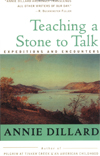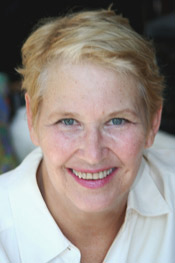English 2
Thursday, January 15, 2015
Banquo's Ghost
In Act 3, Scene 4, Banquo's ghost haunts Macbeth during his banquet. What does Banquo's ghost represent? How do we interpret Macbeth's behavior during this scene? How does Lady Macbeth react to Macbeth's behavior? Comment below.
Wednesday, October 1, 2014
Collected quotes from Annie Dillard's Total Eclipse
I thought it might be useful to collect some of the quotes you analyzed on my blog so we could see them as a group...
“The dead were parted one from the other and could no longer remember the faces and lands they had loved in the light.”
(If, however, I had not read that it was the moon – if, like most of the world’s people throughout time, I had simply glanced up and seen this thing – then I doubtless would not have speculated much, but would of, like Emperor Louis of Bavaria in 840, simply died of fright on the spot.)
"There was no world. We were the world's dead people rotating and orbiting around and around, embedded in the planets's crust."
(Pg. 489, lines 14-20)
“We never looked back. It was a general vamoose, and an odd one, for when we left the hill, the sun was still partially eclipsed- a sight rare enough, and one which, in itself, we would probably have driven five hours to see. But enough is enough. One turns at last even form glory itself with a sigh of relief. From the depths of mystery, and even from the heights of splendor, we bounce back and hurry for the latitudes of home.”
"If there had ever been people on earth, nobody knew it. The dead had forgotten those they had loved. The dead were parted one from the other and could no longer remember the faces and lands they had loved in the light."
"Seeing this black body was like seeing a mushroom cloud. The heart screeched. The meaning of the sight overwhelmed its fascination. It obliterated meaning itself. If you were to glance out one day and see a row of mushroom clouds rising on the horizon, you would at once that what you were seeing, remarkable as it was, was intrinsically not worth remarking. No use running to tell anyone. Significant as it was, it did not matter for a whit. For what significance? It is significance for people. No people, no significance. This is all I have to tell you. "
Wednesday, September 17, 2014
Great Opening Lines...
Ernest Hemingway once wrote, "There is nothing to writing. All you do is sit down at a typewriter and bleed."
Sounds easy right? But where to get started?
Opening lines can be the trickiest part of writing. Countless English teachers have probably reminded you that you should always begin with a hook. But coming up with one sentence that grabs your reader but is also clear and concise can be hard. Rather than tell you how to do it, I thought I would let a few great authors show you. Take a look below:
“To start with, look at all the books.” ~ Jeffrey Eugenides, The Marriage Plot
"All happy families are alike; each unhappy family is unhappy in its own way” ~Leo Tolstoy, Anna Karenina
"Mrs. Dalloway said she would buy the flowers herself" ~ Virginia Woolf, Mrs. Dalloway
"If you really want to hear about it, the first thing you’ll probably want to know is where I was born, and what my lousy childhood was like, and how my parents were occupied and all before they had me, and all that David Copperfield kind of crap, but I don’t feel like going into it, if you want to know the truth." ~J.D. Salinger, Catcher in the Rye
"Call me Ismael." ~Herman Melville, Moby Dick
"The cold passed reluctantly from the earth, and the retiring fogs revealed an army stretched out on the hills, resting." —Stephen Crane, The Red Badge of Courage
"The cold passed reluctantly from the earth, and the retiring fogs revealed an army stretched out on the hills, resting." —Stephen Crane, The Red Badge of Courage
"Those who saw him hushed." ~ Colum McCann, Let the Great World Spin
Want to learn more about opening lines? Read Jonathan Russell Clark's essay in The Millions (The Art of Opening Sentences).
Sunday, September 7, 2014
Letters of Note
Here is the link for your first essay assignment:
Letters of Note
Below is one of my favorite letters from the website!
Dear Sir:
I like words. I like fat buttery words, such as ooze, turpitude, glutinous, toady. I like solemn, angular, creaky words, such as straitlaced, cantankerous, pecunious, valedictory. I like spurious, black-is-white words, such as mortician, liquidate, tonsorial, demi-monde. I like suave "V" words, such as Svengali, svelte, bravura, verve. I like crunchy, brittle, crackly words, such as splinter, grapple, jostle, crusty. I like sullen, crabbed, scowling words, such as skulk, glower, scabby, churl. I like Oh-Heavens, my-gracious, land's-sake words, such as tricksy, tucker, genteel, horrid. I like elegant, flowery words, such as estivate, peregrinate, elysium, halcyon. I like wormy, squirmy, mealy words, such as crawl, blubber, squeal, drip. I like sniggly, chuckling words, such as cowlick, gurgle, bubble and burp.
I like the word screenwriter better than copywriter, so I decided to quit my job in a New York advertising agency and try my luck in Hollywood, but before taking the plunge I went to Europe for a year of study, contemplation and horsing around.
I have just returned and I still like words.
May I have a few with you?
Robert Pirosh
385 Madison Avenue
Room 610
New York
Eldorado 5-6024
(Source: http://www.lettersofnote.com/2012/03/i-like-words.html)
Tuesday, August 26, 2014
Welcome to Mrs. Zimmer's English II
Everyone writes. But in this course, our intention is to learn to write well. In this class, we will create our own blogs which we will use to reflect and write on the readings we examine this year. Unlike your weekly essays, these blogs are for you to respond not only to our readings, but to each other as well. I will post weekly discussion questions to help you get started, but you are welcome to offer up your own thoughts or interpretations on the reading. You may also choose to respond to each other's ideas as well.
We will spend one of our first classes creating your blog so don't despair if you have no idea about where to begin! If you wish to get started on your own, just go to the site www.blogger.com and follow the steps to get started. Once you have set up your blog, please email me a link to you blog so that I may share it with your classmates.
You are expected to write at least one response per week (10 weeks = 10 responses) on the texts we are reading in class. Responses should be at least 250 words in length and should have correct spelling as well as grammar. I will be grading your responses on a ten point scale, with a 10 being outstanding and 0 meaning you wrote nothing that week.
View your blog as your personal journal/ reflection space, so be creative! I look forward to reading your responses.
Subscribe to:
Posts (Atom)



